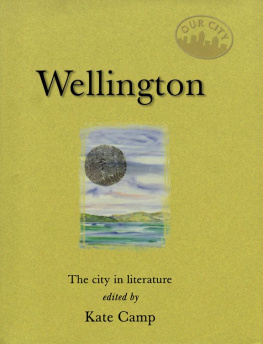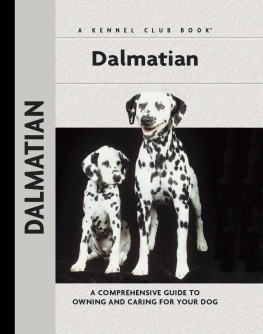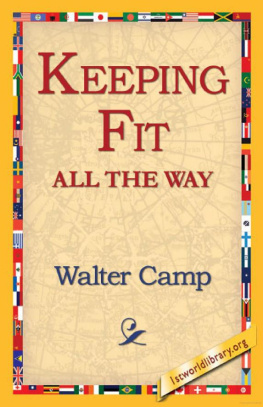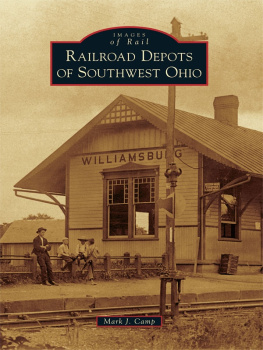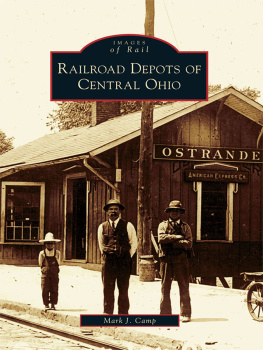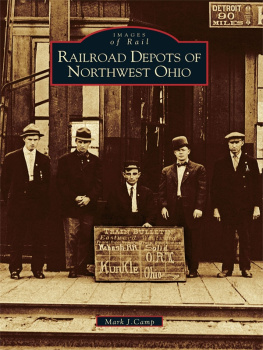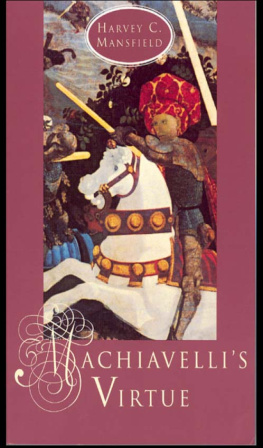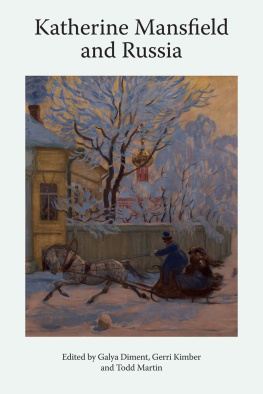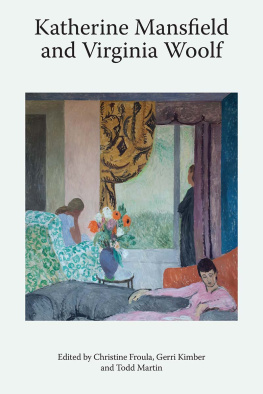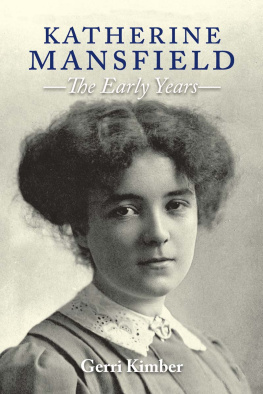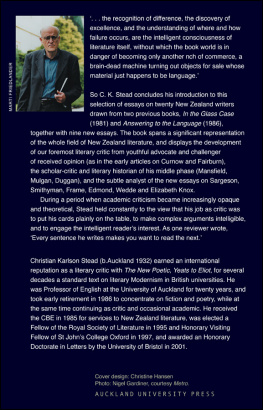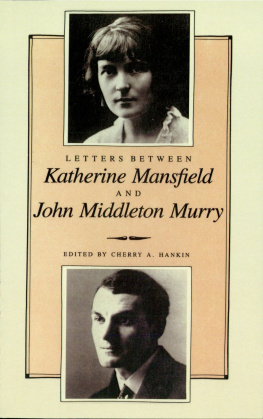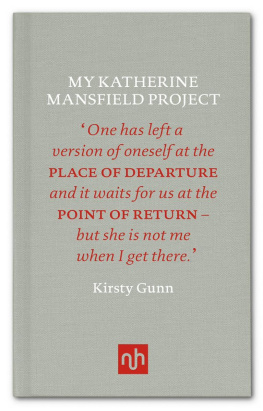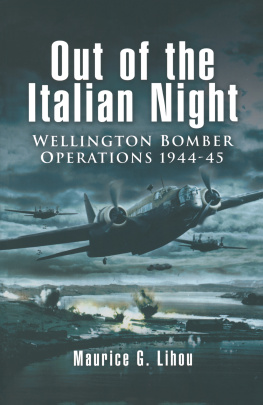I dont remember arriving in Wellington for the first time, but by all accounts it was a stressful occasion. I now live in Newtown, near the old Saint Helens Hospital, and it was there that I spent my first Wellington days, in an incubator, breathing reluctantly. Despite its climactic cruelties and changing face, thats how Wellington has remained for me: a small, safe and sometimes claustrophobic haven. The writer David Geary once said that if you stay in Wellington long enough, youll end up sleeping with yourself. Its happened to me already.
Many of my earliest memories of the city are of trips into town with my grandmother. Clutching my shiny navy and red handbag with its gold clasp, I would sit next to her on the winding bus journey from Khandallah. At Kirks sweet department she would buy me a bag of pink smokers or a stick of cinnamon rock candy and I would watch the wall of moving mechanical clowns near the lift. The best destination in the city was The Umbrellas our name for the Matterhorn Coffee Lounge in Cuba Mall where we would sit under the coloured table umbrellas and eat boiled eggs pierced with toothpicks, and flapjacks filled with jam and cream. The hand-painted sign outside said Today: Curry and Rice for twenty years. The bucket fountain was in Cuba Mall too, and Grandma would always let me wait until we saw the final, big, dark blue bucket empty out and splash water everywhere.
My big sister Mary and I walked up the steep Jubilee Hill every day to get home from school. Some days it was so windy we would hang on to each other at the top, and we often walked up the hill backwards to avoid the daunting spectre of its height. Even as children we were learning to negotiate Wellingtons most trying challenges.
As a teenager I would catch the train into town on a Sunday and find nothing open between the Railway Station and Suzys Coffee Lounge in Willis Street. I once saw a young man in there wearing a trench coat and reading a small, hardback book of poetry, which struck me as the height of sophistication. Across the road from Suzys was the Mandarin Restaurant, with its little cardboard sign saying, W E DONT SELL CIGARETTES OR MATCHES .
Different parts of the city became important to me as I grew older: the dark, freezing living rooms of Holloway Road; sunny, pastoral Tonks Avenue with its skinny dogs and sunflowers; educated Kelburn where, as an undergraduate tribute to James K. Baxter, I changed a street sign to read Upon the U PLAND R OAD ride easy stranger.
And now of course you can barely park in Wellington at the weekend. At beachside and roadside cafs the patrons sit bravely in their sunglasses, sugar bowls and coffee cups weighing down the corners of their newspapers. Instead of the social wasteland of my youth, where all the most exciting things happened in bus shelters, I find I am living in the worlds most cosmopolitan small town.
I chose the stories in this collection because I enjoyed reading them. All capture a Wellington life that feels true to me, whether exhilarating and new, as it is for the children at Katherine Mansfields garden party, or horribly familiar, like Maurice Gees Kelburn in the chilling opening sequence of CrimeStory.
As I look at these stories together, I am struck by how interior this fictional Wellington is, how its interest is almost exclusively with the domestic, the indoors, the private often secret life. These pieces are largely unengaged with the political or public sphere. Perhaps what one reads in the papers and hears on National Radio does not appeal as fictional material for the news-soaked Wellingtonian.
Wellington being such a close-knit village, it is no surprise there are many authors here with whom I have personal associations. Living with my mother in Thorndon, I walked every day past the Katherine Mansfield birthplace in Tinakori Road, that square house with its closed face and serious visitors. Damien Wilkins was my teacher when I first enrolled in a creative writing class at Victoria University, and it was there that I inflicted my enthusiasm on both Bill Manhire and Vincent OSullivan while studying Larkin and Ashbery and Melville. I mourned the death of Lauris Edmond in 2000, knowing I had lost one of my favourite poets, and the source of the citys best literary gossip.
The family feeling in Wellington can be wonderful, or oppressive. If youre feeling lonely, you can simply head into town and walk the golden mile: youre bound to run into someone you know. But you learn never to pass on a juicy secret without looking over your shoulder, and sometimes you cant be sure if you know someone, or have just sat next to them too often on the bus.
Like a beautiful, moody lover, Wellington doesnt need to treat you kindly. Your friends sometimes wonder what you see in it, but when the city is good to you, with its days of almost painful gorgeousness and clarity, you can forgive its bluster, its temper tantrums and cold shoulder. You may be clutching a lamppost, but at least you know youre alive.
Kate Camp
A Wellingtonian is known by his walk a forward lean of some fifteen degrees. The figure whose formulation this was, Healeys grandfather, himself remained upright, even against the stiffest southerly, and would thrust his cane through the wind as if and this was another of his pet phrases cutting a cake. When the ferry came through the narrow, rocky passages into the wide bulb of the harbour, Healey saw that those who had joined him on deck were all bent at this characteristic angle, tipping towards the city which appeared, as always, without warning a candle of light floating a few feet above the winter morning cloud.
The man beside him was an architect. He said he lived in Nelson now, though he was a Wellingtonian through and through and did most of his business in the capital. Without any introductions and without even looking at Healey, the man had simply started talking. The Nelson thing, he said, was for the kids, you know. A healthier environment. Now theyre fifteen, sixteen girls they hate the place. Were going to have to move back. Apparently its unhealthy once they pass that age. Small towns. Ill miss this, though. He pointed at Wellington. Coming in like this. I always bring my clients out here first. Its the only way I can explain what Im trying to do. I dont care if youre not going to be able to see their project from the water. Look at the lines, I tell them. Im a bully. Look at them! Healey followed the mans arm. What are you struck by? What is it that gets you in the eye straight off? Not just the precipitous arrangement, not just the idea the whole shows up there by some sleight of hand. Its the orderliness, too, isnt it? The vertical lines! Thats what I show my clients.

